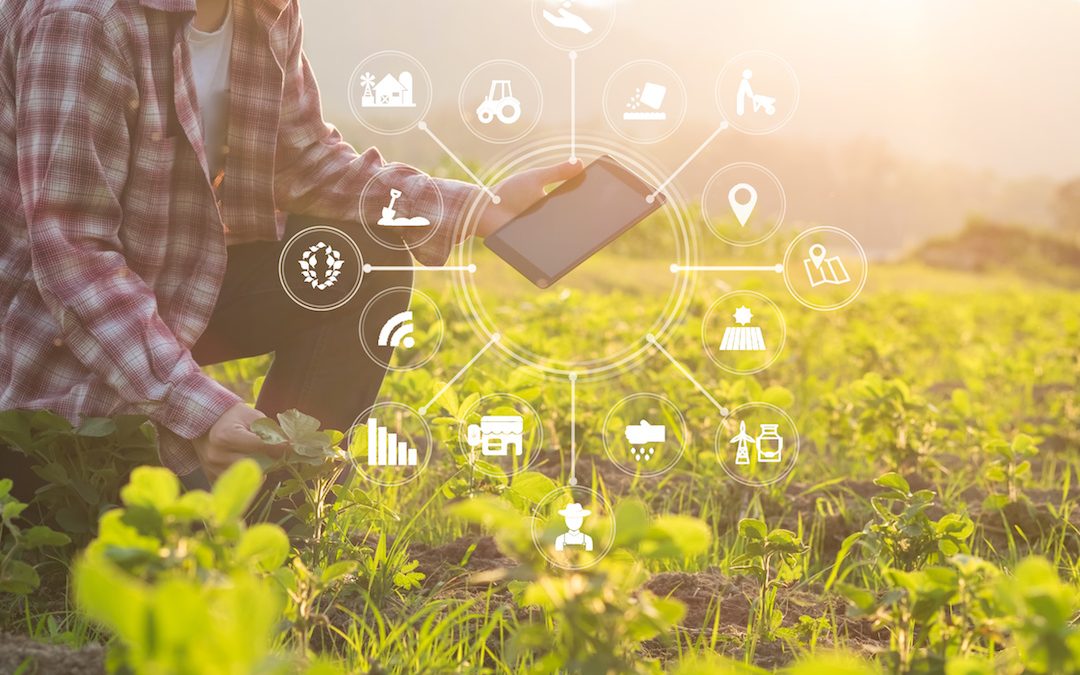
In today’s world, 795 million people are too hungry to lead healthy lives. It’s truly staggering. People everywhere rely on the agriculture industry to find new ways to combat food shortages.
Luckily, new farm technology is being discovered by scientists and engineers that can help increase food production while decreasing labor, time, and costs for farmers.
See below how agricultural technology can help save our planet while cutting time and costs for the agriculture industry.
Sensors
Sensors placed in the ground throughout a field are able to automate the monitoring of crops and provide in-depth data on the state of the soil.
Soil moisture sensors let farmers know when to water their crops or hold off. This saves water and money, which is important in areas where water use is restricted and droughts are common.
There are many other benefits to not overwatering. The soil’s nutrients get washed away when plants are overwatered. This causes the plants to have shallow root growth.
There are two types of soil sensors. Capacitance Sensors and Tensiometric Sensors. The first type of sensors are very accurate and must be calibrated when installed. They measure the moisture within the soil by first determining the soil moisture threshold based on the texture.
Tensiometric Sensors measure the energy level that moisture is being held by the soil. It is important to have two Tensiometric Sensors per soil type. This is because the readings vary depending on the soil and also as lightning back up.
View from Above
Now with modern technology such as satellites and drones, farmers are able to manage many acres of their crops more efficiently. Satellite imagery lets farmers view all of their crops quickly, which can save time and money. They can pick-up on pest infestations, nutrient deficiencies, and diseases must faster.
These can be integrated with underground sensors that can send notifications to alert farmers of potential problems.
Multispectral Imaging is used to detect certain diseases or infections that are not visible right away to the naked eye. It uses what’s called leaf area index (LAI), to monitor the health of the plant’s production.
Good Genes
Genetic engineering research continues to progress in agricultural technology. Scientists are finding ways to change plant genes to improve things like drought tolerance, better survival in a harsh environment, or resistance to diseases.
This is a complex process and involves turning on and off the genetic traits of a plant, removing them, or replacing genes with those of related organisms. Scientists are able to use these microscopic changes to alter not just the plants, but the fruit and vegetables themselves.
As opposed to traditional plant breeding, making changes directly to the DNA can provide big results, much faster!
Autonomous Equipment
Local farmers are also taking advantage of the help that new technology can provide. Some small farms are using autonomous tractors that can replace the cost of actual workers by covering more ground at less the cost. These are helping small farms keep up with their fields and sustain their businesses.
The expectation is that future farm technologies will use these autonomous machines and microrobots at the plant-level. Eventually, farmers will monitor them remotely.
It’s unlikely farmers will ever get replaced. The equipment still breaks down and requires human assistance and monitoring. But these new technologies will certainly help to solve the growing concern of global food shortages.
Agricultural Technology – Where Will it Lead?
Hopefully, these this new agriculture technology will eventually lead to a way to solve world hunger. With all the amazing work done in this field, even the sky isn’t the limit!
Are you a senior-level agri-food/technology executive? Want to gain analytic insights from digital transformation experts?
The Data-Driven Agriculture Summit in Minneapolis, MN, is for you. Learn how to take action using specific data analytics designed especially for your business.
Become more efficient, productive, and sustainable in your farming practices. Contact us to learn more.

